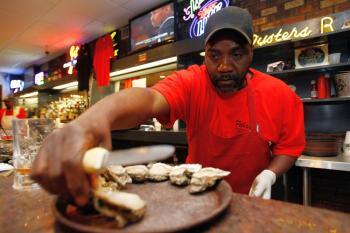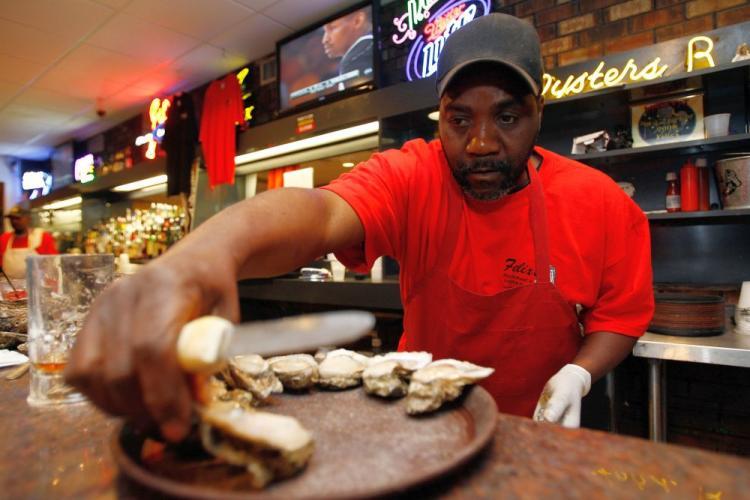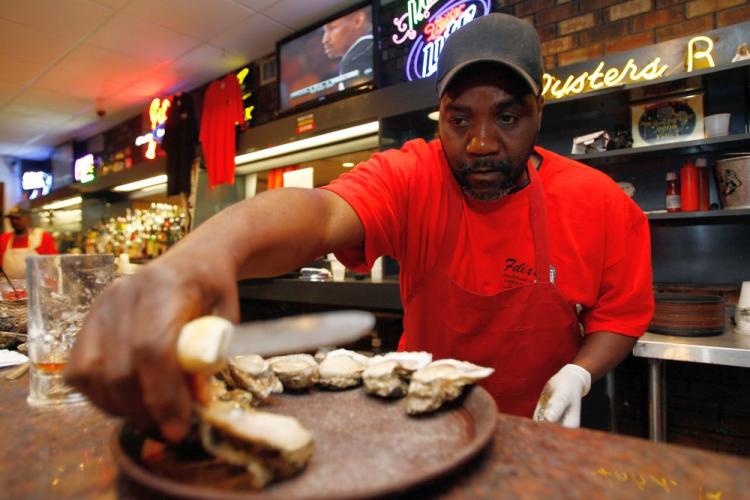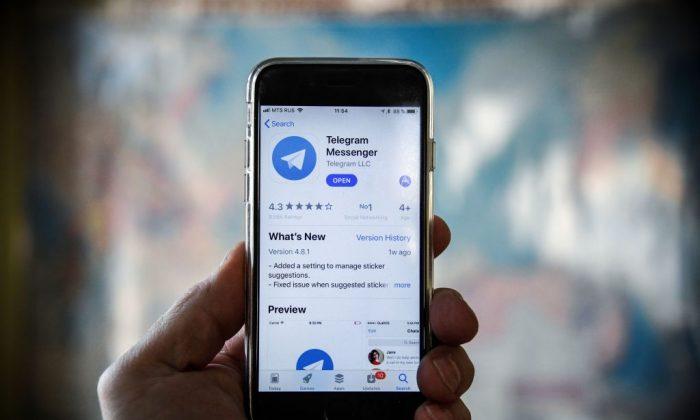With the failure of BP’s “top kill” approach, many businesses around the Gulf of Mexico region have seen business dwindle, tourism subside, and seafood prices rise.
In a series of interviews, restaurant and business owners around the Florida coast spoke about the impacts of the oil spill on their businesses.
Oysterman Steve Rash from Waterstreet, a local company selling fresh and frozen seafood in Apalachicola, Fla., said the oil spill restricted availability and access to seafood such as oysters. He said that though he hasn’t seen any oil in his immediate area, he has seen the effects in many ways.
“We distribute a lot of oysters from Louisiana. We’re not getting them now. There is a huge area that’s blocked off from fishing so our boats can’t get there,” said Rash.
The limited availability of seafood such as oysters has in turn manifested itself in higher oyster prices for business owners on the Florida coast.
Restaurant owner Sam Camariotes of Sam’s Seafood and Steaks in Pensacola, Fla. has seen a material price increase. “The prices have definitely gone up depending on the types of seafood. Shrimp prices have gone up, oysters are off the charts, as well as some other fish,“ he said.
Frank Patti of Joe Patti’s Seafood Company in Pensacola, Fla. also described the effects of the oil spill on his seafood business.
“Needless to say it affects us greatly. About 22 percent of our sales are down, [and] that is not good. We’ve been in the seafood business since the 1930s and we are just trying to figure out how to overcome this,” Patti said.
The oil polluting the once-pristine waters in the Gulf of Mexico has also discouraged many tourists from visiting the Southern coast this summer, costing local businesses clients. Patti pointed to the decrease in tourism as a major problem for his business, saying, “What has hurt us is that the number of tourist that come to the South in the summer time have gone down. The beaches are not good.”
In these rough times, local businesses such as Joe Patti’s Seafood Company continue to look for recovery plans. “We are falling back on our reserves. We just continue to struggle. We still have a faithful costumer base and that’s what I’m relying on. The people that don’t come down, there is nothing I can do to convince them about it,” said Patti.
When asked about possible legal action against BP, Patti said he would rather not comment at this stage.
Darrell Weeks from The Crab Trap Seafood and Oyster Bar in Pensacola sounded slightly more optimistic.
Weeks said that the Crab Trap has not been affected too adversely by the oil spill yet. “Except for blue crabs, we haven’t had any major disruption,” said Weeks.
However, he, like Patti, expressed concern about declining tourism in the area. Weeks said, “The oil spill has decreased tourism and business in the area by 25 percent at least. It has affected other businesses in the area as well.”
Fortunately for Weeks, the business does have some contingency plans in place. “We have contingency plans for sourcing. We have outsourced blue crabs and blue crab meat from Maryland. We will probably begin sourcing some of our seafood from the East Coast, in the Atlantic,” he said.
Though the oil spill has hit some businesses more severely than others, there is no doubt that most businesses have seen the repercussions in some way or another.
In a series of interviews, restaurant and business owners around the Florida coast spoke about the impacts of the oil spill on their businesses.
Oysterman Steve Rash from Waterstreet, a local company selling fresh and frozen seafood in Apalachicola, Fla., said the oil spill restricted availability and access to seafood such as oysters. He said that though he hasn’t seen any oil in his immediate area, he has seen the effects in many ways.
“We distribute a lot of oysters from Louisiana. We’re not getting them now. There is a huge area that’s blocked off from fishing so our boats can’t get there,” said Rash.
The limited availability of seafood such as oysters has in turn manifested itself in higher oyster prices for business owners on the Florida coast.
Restaurant owner Sam Camariotes of Sam’s Seafood and Steaks in Pensacola, Fla. has seen a material price increase. “The prices have definitely gone up depending on the types of seafood. Shrimp prices have gone up, oysters are off the charts, as well as some other fish,“ he said.
Frank Patti of Joe Patti’s Seafood Company in Pensacola, Fla. also described the effects of the oil spill on his seafood business.
“Needless to say it affects us greatly. About 22 percent of our sales are down, [and] that is not good. We’ve been in the seafood business since the 1930s and we are just trying to figure out how to overcome this,” Patti said.
The oil polluting the once-pristine waters in the Gulf of Mexico has also discouraged many tourists from visiting the Southern coast this summer, costing local businesses clients. Patti pointed to the decrease in tourism as a major problem for his business, saying, “What has hurt us is that the number of tourist that come to the South in the summer time have gone down. The beaches are not good.”
In these rough times, local businesses such as Joe Patti’s Seafood Company continue to look for recovery plans. “We are falling back on our reserves. We just continue to struggle. We still have a faithful costumer base and that’s what I’m relying on. The people that don’t come down, there is nothing I can do to convince them about it,” said Patti.
When asked about possible legal action against BP, Patti said he would rather not comment at this stage.
Darrell Weeks from The Crab Trap Seafood and Oyster Bar in Pensacola sounded slightly more optimistic.
Weeks said that the Crab Trap has not been affected too adversely by the oil spill yet. “Except for blue crabs, we haven’t had any major disruption,” said Weeks.
However, he, like Patti, expressed concern about declining tourism in the area. Weeks said, “The oil spill has decreased tourism and business in the area by 25 percent at least. It has affected other businesses in the area as well.”
Fortunately for Weeks, the business does have some contingency plans in place. “We have contingency plans for sourcing. We have outsourced blue crabs and blue crab meat from Maryland. We will probably begin sourcing some of our seafood from the East Coast, in the Atlantic,” he said.
Though the oil spill has hit some businesses more severely than others, there is no doubt that most businesses have seen the repercussions in some way or another.
The Pensacola Fish House in Pensacola Fla. was also one of the luckier businesses in the region. Shelley Yates of Pensacola Fish House said that their business has not been gravely affected by the oil spill. “We haven’t had any negative repercussions yet… We are working together and hoping for the best and preparing for the worst. We have a really close relationship with the local fisherman and we are in constant contact with them,” said Yates.
While these repercussions have caused some businesses, such as Waterstreet, to take legal action against BP Plc—the British oil firm responsible for the Deepwater Horizon explosion—others such as Patti patiently wait to decide what actions to take.







Friends Read Free